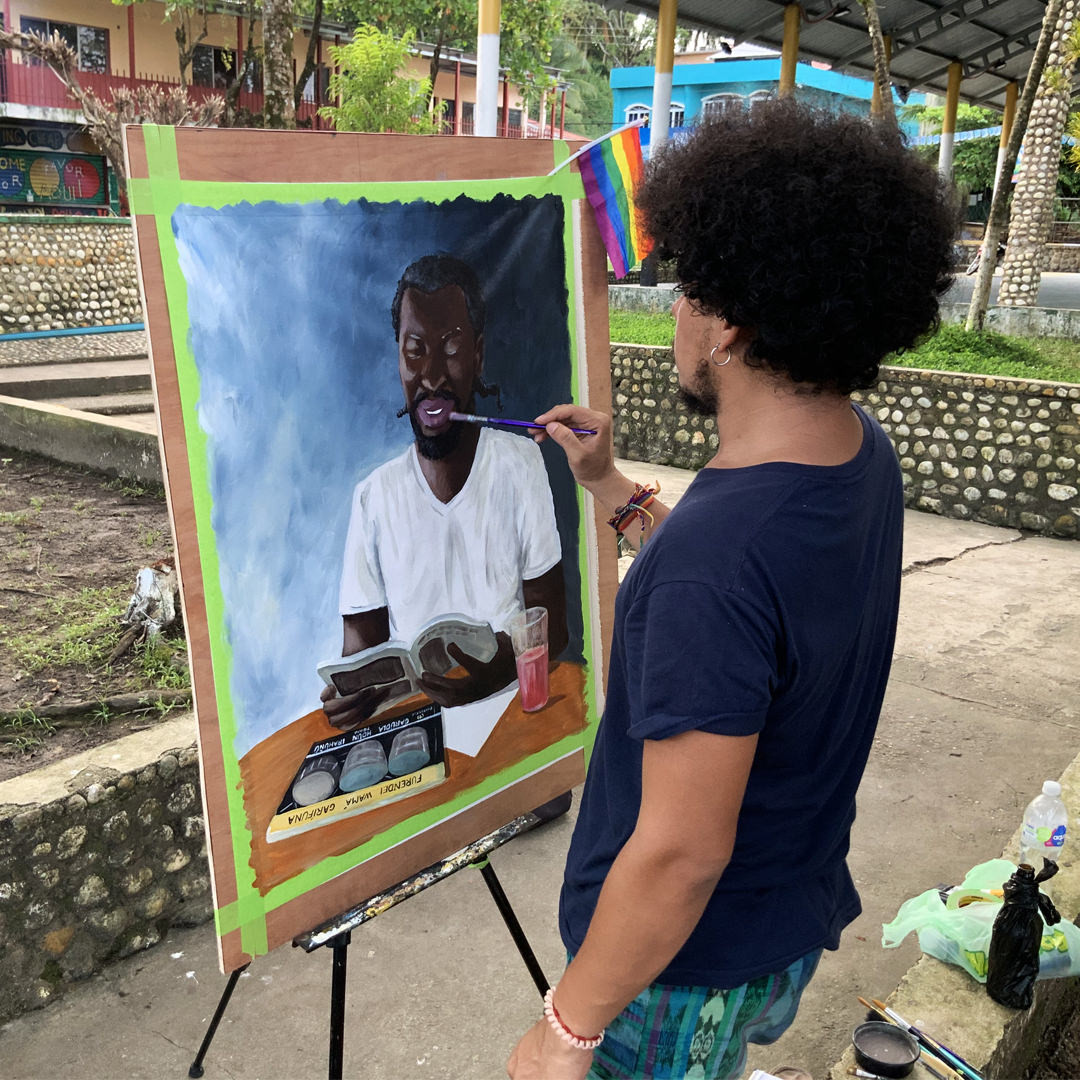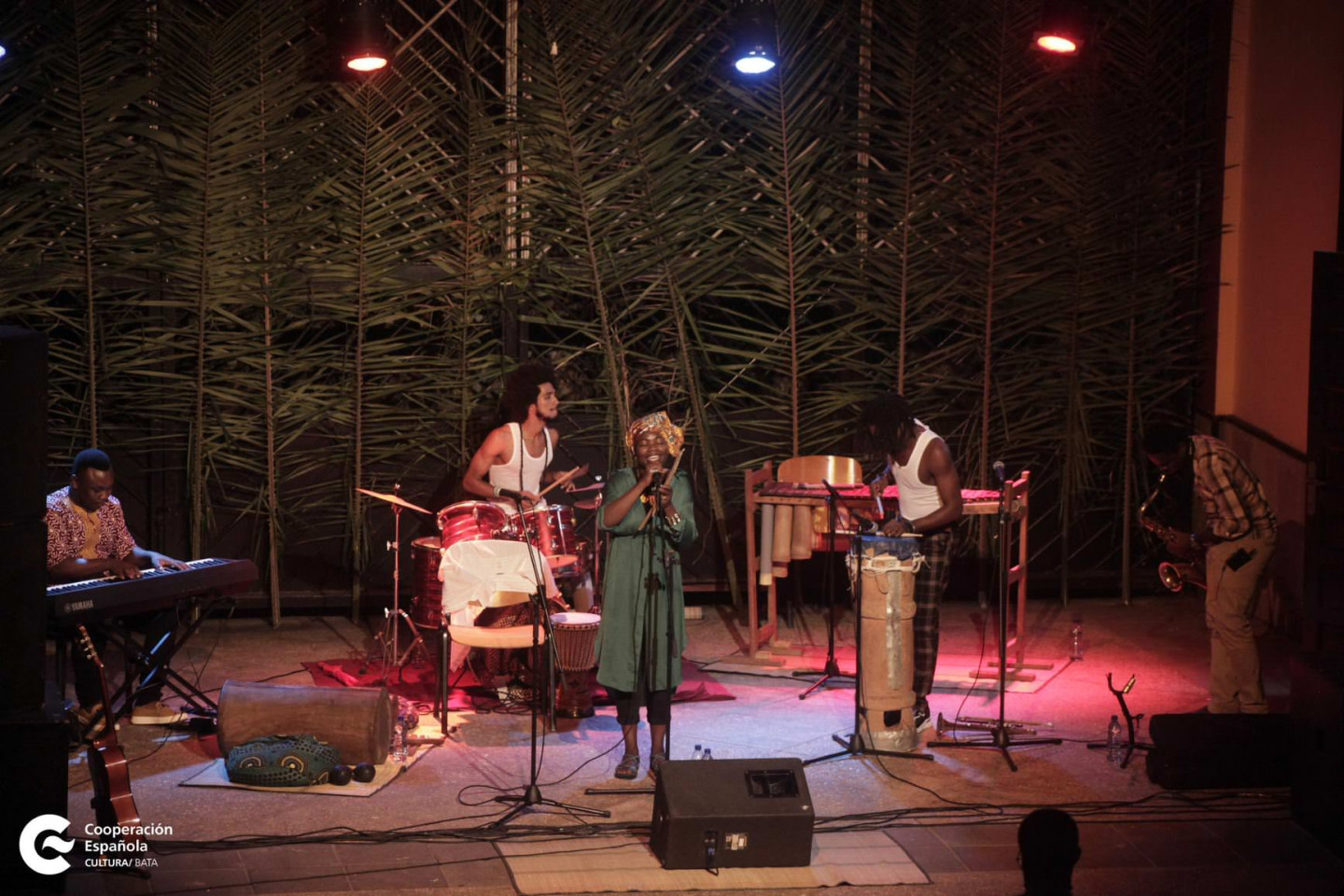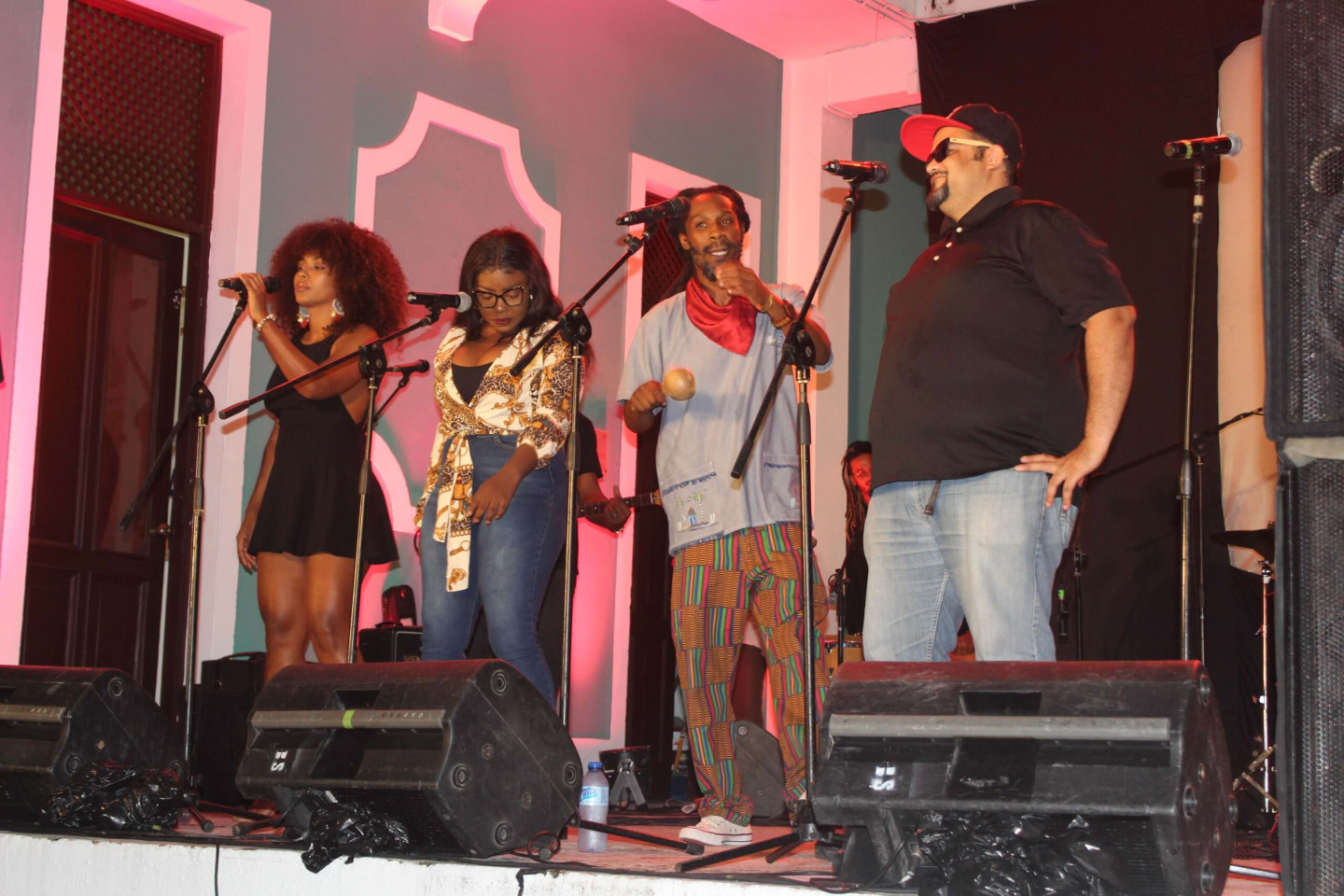AfrOeste is an exchange, learning and promotion network for the contemporary creative arts of the Afro-descendant people of Latin America that builds a bridge between both sides of the Atlantic.
There are more than 130 million Afro-descendant people in Latin America. This community is one of the largest and most diverse in the continent and has experienced structural discrimination and segregation for centuries. Today, they still often face economic and social exclusion, and a lack of visibility even in the digital world.
This is why AfrOeste set out to promote the richness and diversity of cultural expressions of Afro-descendant people in Latin America, to boost the artistic production and exchange between creators, promote contemporary artistic creations, and in the long term, the development of a permanent institutional network centred around Afro-descendant people.
The platform mixes practice and the re-value of contemporary cultural expressions of Afro-descendent people in Latin America with the networks of international coop- eration in existence in European cultural institutions. This work alliance is based on the equality between creators and institutions, with a bottom-up approach, and a willingness to bring to the public the artistic expressions of Afro-descendants.
Protecting Afro-descendant culture in Latin America
To achieve the stated objectives and in order to consolidate the network as an innovative form of communication between local and international cultural agents, the activities included:
- a residency exchange programme for managers and artistis from the Afro-descendant institutions;
- cultural activities within the project's framework through an internal call;
- multilateral cultural events through a process of joint collaboration;
- an online training programme on digital tools for cultural promotion and networking.
During the second step of the process, the project partners developed internal activities to reflect on the content and on how to boost the network such as a networking app for the partnership and an analysis of the situation of Afro-descendant people in Latin America. At the same time, the partners also developed external pilot activities with virtual events to promote Afro-descendant cultures and training sessions on digital tools for cultural promotion and networking.
Working together with AfrOeste has been a wonderful experience, in the past few months we’ve had the opportunity to know incredible women who work insatiably to make their stories shine. The reach of AfrOeste goes beyond an exchange and promotion network for the creative arts, it’s a learning network and connection between organizations, which allows us to establish alliances and connections that create synergies for change.
Amanda Arroyo, Fabrica de Historias, Costa Rica
Afro-descendant culture across the continent(s)
The AfrOeste residency programme was designed to exchange across the Atlantic and Latin America. These residencies allowed artists from respectively Cuba and Equatorial Guinea; Colombia, Equatorial Guinea and Do- minican Republic; and El Salvador and Guatemala to learn of each other’s practices and co-create on the spot.
Multilateral cultural events were organised through a process of collaboration. For example, the Virtual Forum of Afro Creative Women in Peru offered meeting spaces for creative works of Afro-descendant women to be made visible and to contribute to the improvement of their social and working con- ditions, as spaces for dialogue and designing solutions. Participants debated and reflected on topics such as dramaturgy, research on the performing arts, cultural management, the links between art and activism, the position of Afro women in theatre and cinema, and the creation of content.
AfrOeste also hosted several other celebrations of Afro-descendant culture, projects, and other initiatives. For example, the online Afrovisibiles workshop focused on strengthening the communication processes of projects, specifically in the construction of narratives and visibility strategies, with the purpose of generating communicational impact for Afro-descendant projects and initiatives in digital environments. Another example the Kamba Sapukái Festival was hosted to become a permanent international multi-artistic meeting of black women and dissidents in Paraguay – an intercultural proposal that narrates the experiences of people of African descent through artistic expressions, orality, and collective knowledge.



